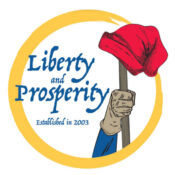Richard Somers is a homegrown American hero
By Seth Grossman, Political Columnist
(Reprinted from September 8, 2010 Current-Gazette Newspapers of Atlantic and Cape May Counties, http://shorenewstoday.com/index.php/…rs-is-a-homegr)
?Between 1530 and 1780 there were almost certainly 1 million and quite possibly as many as 1.25 million white, European Christians enslaved by the Muslims of the Barbary Coast (now known as Morocco, Algeria, Tunisia, and Libya in North Africa). . . While African slaves did grueling labor on sugar and cotton plantations in the Americas, European Christian slaves were often worked just as hard and as lethally ? in quarries, in heavy construction, and above all rowing the corsair galleys themselves. . .?
—Christian Slaves, Muslim Masters, (2004) by Professor Robert Davis, Ohio State University.
Another book, The Stolen Village, by Irish journalist Des Ekin, tells of how the entire population of the Irish fishing village of Baltimore was kidnapped and sold into slavery in Algiers in 1631.
When our Revolutionary War against England ended in 1783, American ships began sailing around the world. But they were attacked by these ?corsairs? whenever they came anywhere near North Africa. About 400 American men and women were captured each year and either redeemed for ransom or sold into slavery.
?Corsairs? were not ?pirates? but ?privateers?. Their governments gave them ?letters of marque and reprisal? to attack ships from any nation not at peace with them. And these governments were at war with every Christian nation that did not agree to pay them ?tribute?, i.e. ?protection money?.
This was very convenient for England, France, and Spain. These large countries could afford to pay tribute, while smaller countries could not. This gave monopolies to English, French, and Spanish shipping in that part of the world.
In 1785, our ambassadors Thomas Jefferson and John Adams met in London with a top official from Tripoli, and asked why our ships were being attacked for no reason. Jefferson reported that he got this explanation:
?It was written in their Koran, that all nations which had not acknowledged the Prophet were sinners, whom it was the right and duty of the faithful to plunder and enslave; and that every Muslim who was slain in this warfare was sure to go to paradise. . . ?
Jefferson urged war, but Congress refused to pay for a navy. It instead agreed to pay $2 million each year, 10 percent of the federal budget, to free captured Americans in North Africa.
But by 1798, Americans shouted, ?Millions for defense! Not one cent for tribute!? President John Adams and Congress spent a fortune on a new navy, with new warships and a Naval Academy in Annapolis. Twenty-year-old Richard Somers of Somers Point was one of the first to join.
In 1801, President Thomas Jefferson sent a dozen American warships, and several thousand sailors, mostly teenagers, to the coast of North Africa, 5,000 miles away. One of those ships was commanded by 23-year-old Richard Somers.
In three years, these young Americans amazed the world by quickly destroying three of the four strongest Barbary fleets. The fleet of Tripoli survived only by fleeing to its harbor. Richard Somers planned a daring mission to destroy it. He packed a small boat with explosives and tried to detonate it near the corsair fleet. But the boat exploded too soon. Richard Somers and his entire crew were killed.??
But they did not die in vain. The remaining American fighting men were so angry and inspired, that they ignored instructions from Congress. Instead of paying tribute to make peace, they used the money to hire local mercenaries and land on ?the shores of Tripoli.? The last corsair holdout made peace with America in 1805.
This shamed England, France, and Spain into uniting to end the ?white slave trade? a few years later. This also shamed and inspired many Europeans and Americans to fight against the enslavement of blacks.
At one time, every grade school taught the story of Richard Somers. But today, only Somers Point schools do it. The others teach Mahatma Gandhi and Nelson Mandela instead.
Learn more about Richard Somers at the annual ceremony in Somers Point at 3 p.m. this Sunday, Sept. 12 at the Somers Mansion by the Somers Point Circle on Shore Road by the bridge to Ocean City. Park free by Gregory?s Restaurant and Bar, at 900 Shore Road. The event is co-sponsored by LibertyAndProsperity.org and the Somers Point Historical Society. To help pay for programs like these a fundraiser will be held at 4 p.m. at Gregory?s Restaurant and Bar following the program. Contact any Liberty & Prosperity member for tickets.
Somers Point attorney Seth Grossman appears live on WVLT-92.1FM, heard throughout South Jersey 8-9 a.m. every Saturday. For information see www.libertyandprosperity.org, email grossman@snip.net or call (609) 927-7333. Breakfast discussions are held 9:30-10:30 a.m. every Saturday at the Shore Diner, Tilton and Fire Roads, Egg Harbor Township.
